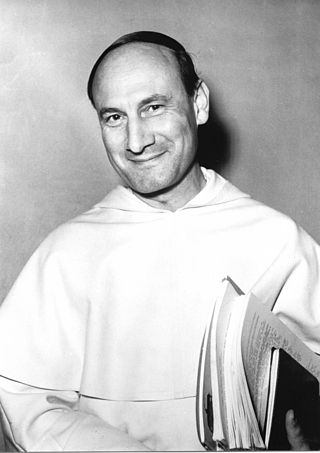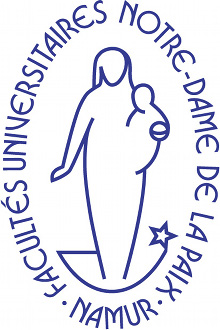Related Research Articles

Dyula is a language of the Mande language family spoken mainly in Burkina Faso, Ivory Coast and Mali, and also in some other countries, including Ghana, Guinea and Guinea-Bissau. It is one of the Manding languages and is most closely related to Bambara, being mutually intelligible with Bambara as well as Malinke. It is a trade language in West Africa and is spoken by millions of people, either as a first or second language. Similar to the other Mande languages, it uses tones. It may be written in the Latin, Arabic or N'Ko scripts.

The Catholic University of Leuven or Louvain was founded in 1834 in Mechelen as the Catholic University of Belgium, and moved its seat to the town of Leuven in 1835, changing its name to Catholic University of Leuven. In 1968, it was split into two universities, the Katholieke Universiteit Leuven and the Université catholique de Louvain, following tensions between the Dutch and French-speaking student bodies.
Raoul Vaneigem is a Belgian writer known for his 1967 book The Revolution of Everyday Life.

Tambacounda is the largest city in eastern Senegal, 400 kilometres (250 mi) southeast of Dakar, and is the regional capital of the province of the same name. Its estimated population in 2007 was 78,800.

The Festival au désert was an annual concert in Mali, showcasing traditional Tuareg music as well as music from around the world between 2001 and 2012. It was founded and directed by Manny Ansar, and attracted thousands of visitors, bringing a huge boost to the economy.

Dominique Pire, O.P. was a Belgian Dominican friar whose work helping refugees in post-World War II Europe saw him receive the Nobel Peace Prize in 1958. Pire delivered his Nobel lecture, entitled Brotherly Love: Foundation of Peace, in December 1958.

The University of Namur or Université de Namur (UNamur), in Namur (Belgium), is a Jesuit, Catholic private university in the French Community of Belgium. Both teaching and research are carried out in six Faculties or university level schools in the fields of:

Titinga Frédéric Pacéré is a Burkinabé solicitor, writer, poet and griot and founder and curator of the Musée de Manega museum in Burkina Faso. He studied in Abidjan. He has written over twenty books and published 60 volumes and has been awarded the medal of honour of the Association of French speaking writers (A.D.E.L.F.).

Robert Cogoi was a Belgian singer, best known for his participation in the 1964 Eurovision Song Contest.
Jean-Pol Vigneron was a Belgian physics professor. Jean-Pol started his career working on semi-conductor physics, however he is best known for his later work on the physics of animal colours, photonic crystals, and naturally occurring optical structures.
Santé Diabète (SD) is a French Non-governmental organization (NGOs) whose headquarters is in Grenoble (France) which is working on strengthening health systems to improve the prevention and management of diabetes in Africa. As part of a chronic disease like diabetes, improving the quality of care saves thousands of lives but also improves the quality of life for people living with diabetes.
Michèle Gérard was a Belgian writer and playwright.
The Centre national de coopération au développement (CNCD-11.11.11) is a Belgian non-governmental organization for international solidarity that has been active since 1966.

Moulaye Dicko, better known by his stage name Dicko Fils, is a Burkinabé musician of Fulɓe origin. He sings and plays the kamale n'goni.
The Battle of Idelimane took place during the Internal Conflict in Azawad.
Jean-Dominique Burton, born on 13 October 1952 in Huy (Belgium), is a Belgian photographer and filmmaker, author of several books of photographs focusing on Europe, Asia and Africa. Since 1978, numerous exhibitions have been dedicated to his work, in Europe, Africa, North America and Asia. Many of his works have also been included in public and private collections.

An ongoing war and civil conflict between the Government of Burkina Faso and Islamist rebels began in August 2015 and has led to the displacement of 1.9 million people and the deaths of at least 2,000 civilians and combatants.

Islamist insurgency in the Sahel or Jihadist Insurgencies in the Sahel refers to the Islamist insurgency in the Sahel region of West Africa following the 2011 Arab Spring to the present day. In particular, the intensive conflict in the three countries of Mali, Niger and Burkina Faso has been referred to as the Sahel War.

Collège Notre-Dame de la Paix is a mixed Catholic primary and secondary school in Erpent, Namur, Belgium. Its origins go back to 1610 and the creation of the College of Namur by the Jesuits in the centre of Namur. After the suppression of the Jesuits in 1773 and Belgian independence, the college was opened in 1831 on the rue be Bruxelles in the centre of Namur and in 1971 the entire school was transferred to Erpent, Namur.

Brenda Odimba is a Belgian engineer and activist. Odimba was one of the spokespeople of the 2021 hunger strike of undocumented migrants in Belgium. Odimba founded the association NewSisterhood.
References
- ↑ "Åland - fredens öar, YouTube video", Government of Åland , March 22, 2023. Short 10 minute film for schools with information about Åland, subtitles available in English